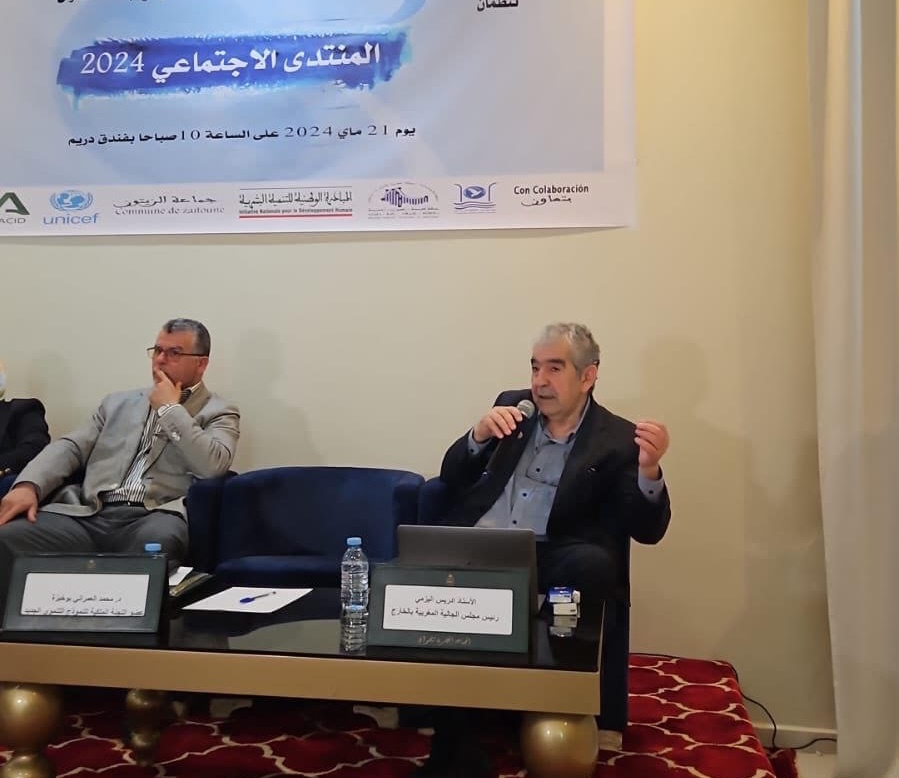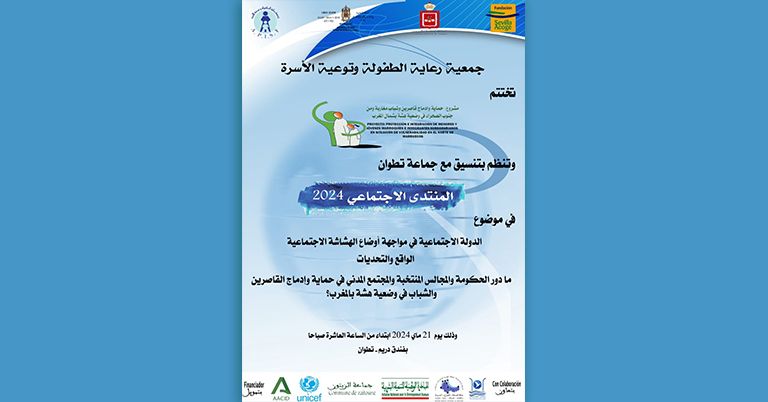A forum exploring means of protecting and integrating Moroccan and migrant minors was held on Tuesday 21 May 2024 in Tetouan, initiated by the Child Protection and Family Awareness Association (APIASF), in cooperation with the municipality of Tetouan.
Organized at the closing of the second round of the ‘Project for the protection and integration of Moroccan and migrant minors from sub-Saharan Africa in vulnerable circumstances in northern Morocco’, it is being conducted by the association in partnership with the ‘Fundacion Sevilla’, and funded by the Andalusian Agency for International Development Cooperation (AACID), in collaboration with various public institutions and
The forum provided an opportunity for discussion and debate between the government sectors involved in migration issues, elected councils and community groups.

The purpose was to debate current and pressing social issues, with the aim of strengthening the systems of protection and support needed for the integration of people in difficult situations as well as promote social plans and strategies in this area.
Addressing the meeting, Mr Driss El Yazami, President of the Council for the Moroccan Community Abroad (CCME) he discussed the issue of unaccompanied Moroccan minors, since it emerged in the 1980s as a universal phenomena, presenting Countries, calling it a ‘social and political phenomena’.
‘Two global political dynamics have appeared: the first being the International Convention on the Rights of the Child (CRC), ratified by Morocco in 1993, and the adoption of legislative and institutional policies to strengthen the laws governing people's mobility’, he noted, in a statement to MAP.
Morocco is the only country to tackle the issue of unaccompanied minors within the framework of its relations with other countries, in conformity with the High Royal Guidelines, with the Kingdom's readiness to bring back unaccompanied Moroccan minors who are abroad’, insisted Mr El Yazami, stressing that Morocco and Spain are called on to ‘ join the initiative to set in motion a new dynamic and take advantage of the experience of centres for the protection of these children in both countries’.
For his part, Mohamed Amrani Boukhobza, a university professor and member of the Special Commission in charge of the development model, stressed that ‘the issue of social vulnerability in Morocco is complicated, affecting different social categories, and that it is difficult to create plans and strategies to deal with it comprehensively’.
With MAP


